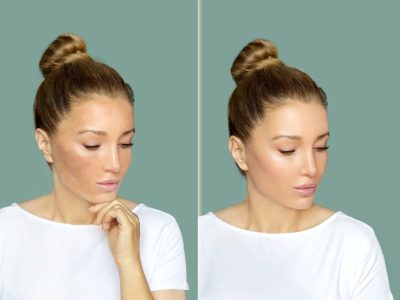As we age, our skin goes through various changes. From wrinkles and fine lines to hyperpigmentation and age spots, these changes can have a significant impact on our appearance. Skin pigmentation, in particular, is one of the most noticeable signs of aging. But, does it really make you look older? And, what are the causes and effects of skin aging? In this article, we will explore these questions and more.
Does Pigmentation Make You Look Older?


Yes, skin pigmentation can make you look older. Dark spots, also known as age spots or liver spots, are a common form of pigmentation that appears on the skin as we age. These spots are caused by overproduction of melanin, the pigment that gives color to our skin, hair, and eyes. When melanin production is disrupted, either due to sun exposure, hormonal changes, or other factors, it can lead to an uneven distribution of pigment on the skin, resulting in age spots.
What are the Causes and Effects of Skin Aging?
The causes of skin aging are numerous and can vary from person to person. Some of the most common causes of skin aging include:
Sun exposure: Exposure to UV rays from the sun can damage the skin and cause premature aging.
Genetics: Our genes play a significant role in how our skin ages, including pigmentation.
Lifestyle factors: Smoking, poor diet, lack of sleep, and stress can all contribute to skin aging.
Environmental factors: Pollution and other environmental factors can also accelerate skin aging.
The effects of skin aging can include wrinkles, fine lines, sagging skin, dryness, and, of course, pigmentation.
How Does Skincare Affect Skin Aging?
As mentioned earlier, sun exposure is one of the primary causes of skin aging. UV rays from the sun can penetrate deep into the skin, causing damage to the cells and leading to premature aging. Additionally, as we age, our skin’s ability to produce collagen and elastin decreases, which can result in sagging skin and wrinkles. Hormonal changes, such as those that occur during menopause, can also lead to changes in pigmentation and other signs of aging.
Skincare plays an essential role in preventing and treating skin aging. One of the most popular and effective treatments for skin pigmentation is the Hydrafacial treatment. This treatment combines cleansing, exfoliation, and hydration to improve skin texture and tone, reduce pigmentation, and boost collagen production. It is particularly effective for Asian skin, which is more prone to hyperpigmentation.
Skin pigmentation is a common sign of aging that can make you look older. Causes of skin aging include sun exposure, genetics, lifestyle factors, and environmental factors. To prevent and treat skin aging, it is essential to maintain a healthy skincare routine, including regular use of sunscreen and treatments such as the Hydrafacial.
